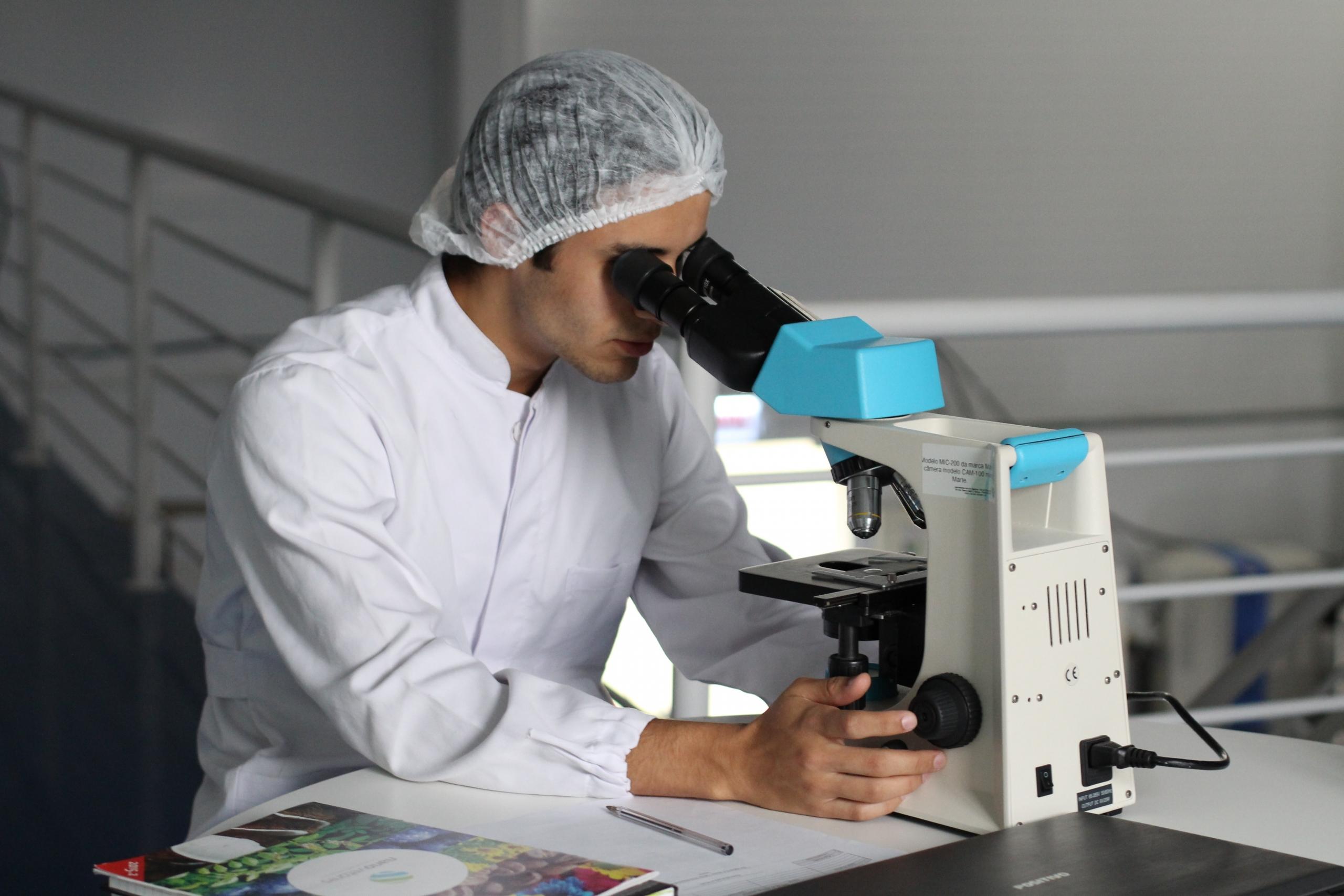The basic requirement for becoming a chemist is a Bachelor's Degree in Chemistry or a related field. Computer science, physics, mathematics, and biology classes along with coursework in organic, inorganic, and physical chemistry equip future chemists with the knowledge needed for a successful career.
In this article, you'll find information about the jobs available for chemists in the United States, what companies are hiring chemists, we'll also give you some tips on preparing for the job application process, and much more.
Continue reading if you are interested in pursuing a career in Chemistry in the United States.

What is a chemistry company?

A chemistry company refers to any business or company that works in the field of chemistry developing products that'll help improve processes and more.
These companies are usually found in industries like technology, oil, food, development, pharmacology, and much more.
As a student, you should think of the fields that interest you and focus on gaining years of experience doing the things you like. For instance, if you want to get into the technology field, you should try not to waste your time working for an oil company. Or if you dream of becoming a research chemist, you should try to find internships in that area of study.
Building your career is all about making the right choices, instead of choosing and deciding without having a clear plan or path. If you only apply to internships because they'll give you course credit or pay you, but you aren't paying attention to your CV or the correlation in your experiences, you'll have a harder time landing a dream job.
What is the salary for different chemistry jobs?
Find a job as a chemist in the United States
On average, it takes recent graduates and last year college students around 6 months to a year to find a job in the market, field, or industry of their interest.
Many students tend to search for jobs in popular states like New York, Washington, and California. However, you should know that not every field has developed in all of the states. Some states have great advancements in the food industry, others in research, others in manufacturing, and so on.
This is why you should do the proper research before you start searching for work or working for a big company. There are plenty of different fields you can go into with a degree in chemistry and as a chemist.
If you want to become a chemist and work with other chemists you'll need to get a Bachelor's degree in chemistry and if you wish to pursue other careers like chemical engineering or environmental studies, you'll need a Master's degree or other types of specializations.

Below, you'll find a list of some of the careers you can pursue with a degree in chemistry:
- Biotechnologist - in this job, you will study the genetic, chemical, and physical attributes of organisms, tissues, and cells to develop new products, technologies, and processes that will address some of the biggest problems in society.
- Pharmacologist - the job of a pharmacologist is to study and investigate how drugs interact with biological systems. These scientists also carry out research to aid drug discovery and development.
- School or university teacher - if education is your passion, you should consider working in different school programs as a chemistry teacher. You could be a high school, university, graduate, or Ph.D. teacher and work at the level you're at to help other students achieve their goals in the field.
- Chemical engineering - chemical engineers are involved in the design and development of new products from raw materials. They use their knowledge of chemical properties and reactions to transform materials from one state to another, for example making plastic from oil.
- Nanotechnologist - this field encompasses science, physics, chemistry, biology, engineering, and computer science. Having a Bachelor's degree in chemistry won't suffice, but it can be a start. As a nanotechnologist, you’ll manipulate matter and learn to develop new materials, equipment, drugs, or diagnostic tools.
- Forensic scientist - if want to become a scientist and a chemist but also feel passionate about crimes and solving puzzles, then you should consider a career as a forensic scientist. Forensic scientists are responsible for analyzing materials (like droplets of spit, hairs, blood) found in crime scenes and working alongside detectives to find clues and suspects.
- Analytical chemist - analytical chemists use their skills and knowledge of chemistry to analyze substances and materials. Some of these may be food, drugs, and other products consumed and used by humans and animals.
Are there any specific qualifications you need to be a chemist?
Companies you can apply to
As you could see, there are plenty of different fields you can work for and specialize in as a chemist. Continue reading to find out some of the top companies you can work for if you specialize in some of the fields specified above.
Keep in mind that the salary of each job can change depending on the field and the level of experience or the years of study and research you have under your belt.
Pharmacology
Pharma is a very powerful field and during the pandemic, they've played an important role in keeping people safe and healthy. Keep in mind that you'd be working mostly in a lab if you become a pharmacologist. Below is a list of some of the top companies and their 2020 revenues.
- Merck — $47,994,000,000
- AbbVie — $45,804,000,000
- Janssen (Johnson & Johnson’s pharmaceutical segment) — $45,572,000,000
- Bristol Myers Squibb — $42,518,000,000
- Pfizer — $41,908,000,000

Forensic science and technology
As explained above, forensic science is a field designed for people interested in crime and someone who has a talent for solving puzzles. This job is also for people who enjoy being in a lab.
- Cellmark Forensic Services
- Sorenson Forensics
- SPEX Forensics
- Thermo Scientific
Chemical engineering
Chemical engineering is a job that is currently in high demand because you can apply your knowledge to different fields. You can work in industries like food, oil, technology, and much more with a degree in chemical engineering, and not all of these jobs are based inside a lab.
- Chevron
- Deloitte
- DuPont
- Schreiber Foods
- Unilever
- Holcim (US) Inc.
Biotechnology
If you are passionate about scientific data recollection, then biotechnology is probably not the best field for you. However, if you enjoy developing new technologies, working in scientific experiments, having a team to work with, then you should consider this as a possible career path.
- Illumina
- Life Technologies
- PerkinElmer
- Promega Corporation
What are the top chemistry fields?
Embark on a journey of academic excellence with the support of a knowledgeable and accessible chemistry tutor, breaking down barriers to learning from anywhere in the world.
Prepare for the application process
Many students and recent graduates tend to make the same mistakes when it comes to applying to a new job. But there are some tips and guidelines you should follow to help you prepare for the application process.
First, you should make sure your CV is coherent, clear, short, and concise. For instance, many people tend to have experience in different areas and tend to include all their experience in their CV, but sometimes this can be a mistake.
Find Chemistry tutoring here on Superprof.

Employers are searching for people with great careers and experience in the industry but they also don't have much time to read through everything. If you are applying for a job to work as a chemist to develop frozen food in a laboratory, you should try to avoid adding information that is not related to the subject in your resume.
You should put down everything that makes you perfect for the job and add some extra fun facts, but don't make your employer fish for the information.
Make sure to include in your CV your contact information and other data like your GPA, awards, certifications, volunteer jobs, school extracurriculars, and so on. Include these last few especially if you learned new skills that will be valuable for the jobs you're applying to.
Another important thing to prepare for is the job interview. Job interviews tend to be tricky and nerve-racking, however, you should learn to do your best in the short amount of time you have to impress your future employer.
You can take a workshop in school on how to develop good interviewing skills, ask a friend to help you practice, research everything there is to know about the company and industry you're applying to and learn to answer the tricky questions.
Keep in mind that in this process your degree and education matter, but everyone else in the field has a degree and an education too, so you have to come up with something that sets you apart from the rest.
Did you have an interesting internship as an assistant to forensic scientists? Do you have experience working with different substances and materials? Are you a good team player? Do you have an analytical and critical mind? Did you work in a team to help the development or manufacturing of a new medicine?
These things are the kind of things that will set you apart from the rest of the applicants. Your level of education will only take you so far, but it is your experiences that have the potential to make a difference.
Discover amazing chemistry classes online taught by professional tutors on Superprof.
Summarize with AI:















